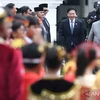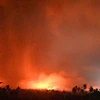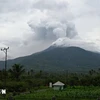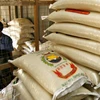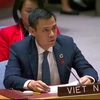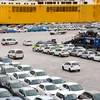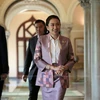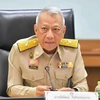Singapore (VNA) – Singapore is facing the risk of dengue fever outbreak in 2024 as the number of mosquito-borne tropical disease cases surged in the first months of the year.
According to the National Environment Agency (NEA) of Singapore, over 5,000 dengue cases were reported in the first quarter, doubling that of the same period last year, with seven deaths, higher than the figure of the whole 2023.
Dengue fever traditionally peaks from May to October in the city-state. On March 31, Singapore launched a national campaign to prevent dengue fever, calling for the community to apply preventive measures against the disease.
Singapore saw the number of dengue cases fall to 9,949 last year, down from the 32,173 cases seen in 2022. In the year, the country reported six deaths from the disease, a strong drop over 19 fatalities in 2022.
NEA conducted over 813,000 inspections in 2023, uncovering more than 19,600 mosquito breeding habitats. Slightly over half were found in homes, 38% in public areas and 5% at construction sites.
About 11,200 enforcement actions were taken against owners of premises for mosquito breeding, while about 800 enforcement actions and 108 stop-work orders were issued to construction sites. More than 100 contractors were charged in court for repeating offences./.
According to the National Environment Agency (NEA) of Singapore, over 5,000 dengue cases were reported in the first quarter, doubling that of the same period last year, with seven deaths, higher than the figure of the whole 2023.
Dengue fever traditionally peaks from May to October in the city-state. On March 31, Singapore launched a national campaign to prevent dengue fever, calling for the community to apply preventive measures against the disease.
Singapore saw the number of dengue cases fall to 9,949 last year, down from the 32,173 cases seen in 2022. In the year, the country reported six deaths from the disease, a strong drop over 19 fatalities in 2022.
NEA conducted over 813,000 inspections in 2023, uncovering more than 19,600 mosquito breeding habitats. Slightly over half were found in homes, 38% in public areas and 5% at construction sites.
About 11,200 enforcement actions were taken against owners of premises for mosquito breeding, while about 800 enforcement actions and 108 stop-work orders were issued to construction sites. More than 100 contractors were charged in court for repeating offences./.
VNA








